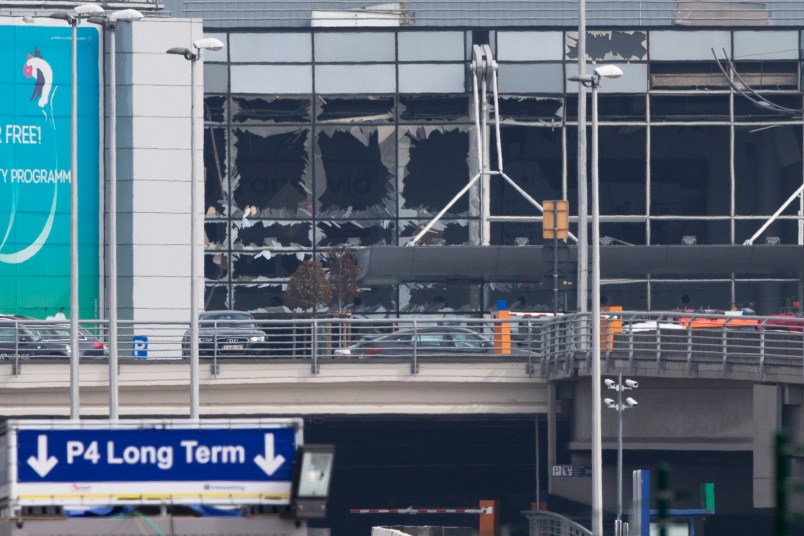From John Judis ...
Another terrorist attack, this time in Brussels. I don’t see an end to these, and at the same time I don’t think Americans or Europeans will accept a strategy of letting them play out on the grounds that less people die in terrorist attacks than in highway accidents or bathtub electrocutions. They will strengthen the hand of interventionists, but not sufficiently so that the threat can finally be eliminated rather than exacerbated. They will draw the United States and Europe into a conflict that it is not prepared to fight to the end, which would involve not just the military, but unprecedented diplomatic moves that would undo 150 years of Western intervention in the Middle East and North Africa.
Several points here:
1) To those who caution calm and forbearance: terrorist attacks don’t just kill individuals; they threaten the existence of public spaces (bus terminals, stadiums, streets, subways, restaurants) that are integral to life itself. They create a consistent and growing level of public anxiety.
2) To those who say after each attack that they represent a last desperate attempt by terrorist groups on the wane; Many of these attacks emanate immediately from ghettoized communities in Europe of formerly colonized peoples who have not been successfully integrated into European society. That needs to be addressed through social programs of various kinds.
But the underlying causes lie in the West’s tortured relationship to the Middle East and North Africa – a relationship that goes back to the beginnings of European colonialism; continues through Sykes-Picot and the Balfour Declaration; and down further still to America’s entry into the Middle East after World War II, to our intervention in Iran, our support for the Sunni oil despots, our invasion of Iraq, our unflinching support for Israel in its conflicts with the Palestinians; and most recently, our abortive intervention with the Europeans in Libya and Syria.
Not doing anything – withdrawing collectively from the Middle East and waiting for these conflicts to play out won’t work. That would mean decades of continued strife and continued acts of terror. Half-measures like the Obama administration has attempted in Syria won’t work. What’s needed is the most comprehensive plan for the Middle East – one that tries to undo the past.
After 9/11, I put this in terms of waging war and peace at the same time – war against al Qaeda and peace in the conflict between Israel and the Palestinians – but since then, the problem has vastly deepened and broadened. Borders created by the Europeans after World War I are being destroyed. Age-old religious and tribal conflicts have revived. Nothing less that the kind of concerted plan – on the model of Bush I’s coalition in the first Gulf War – would suffice to tamp down and began to resolve the conflicts in that region.
But I can’t see anything like that in sight. The EU is divided, and the American and European public understandably has no appetite for a more concerted intervention – one that would not only have to shake up older alliances, but also involve the military. And it’s a plan that even if fully implemented still might fail miserably. Think of the West in Afghanistan. Al Qaeda’s original strategy, which ISIS has carried forward, may have actually succeeded. I am pessimistic that any resolution will come out of this terrorist attack, except perhaps for a continued movement to the populist right in northern Europe and a boost for Donald Trump.






